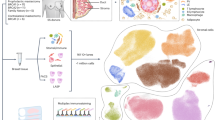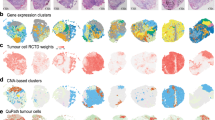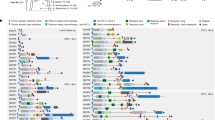Abstract
Allelic losses on the short arm of chromosome 17 occur frequently in colorectal cancers. Despite the existence of other common molecular events such as loss of the long arms of chromosomes 18 and 5, it has been demonstrated that the former has the greatest prognostic significance. Of the various genes mapping to the commonly deleted sequence, the best candidate as a 'target' seems to be the p53 antioncogene. We applied our methods of detection of the p53 protein in a series of 78 colorectal cancers stored in a tumour bank from 1985 to 1989, for which the median follow-up was 42 months. Nuclear-attached p53 was quantified by flow cytometry and soluble p53 was assayed by ELISA. Both assays used a monoclonal antibody considered to be specific for a conformational epitope present only on the mutated protein. Fifty of the 78 tumours (64%) were found to present significant levels of p53 attached to the nucleus. A further two tumours contained high levels of p53 only in their soluble fraction. Thus, 52 out of 78 cancers (67%) were considered to be positive for p53. The p53 content correlated with 17p loss (P < 0.002), hyperdiploid DNA content (P < 0.001) and tumour site (P < 0.03), but not Dukes' stage (P = 0.15). p53 negative cases had a better overall survival than p53 positive ones (P < 0.03). When the 14 stage D tumours were excluded from the analysis, p53 was no longer significantly predictive of survival (P < 0.07), but remained predictive of recurrence (P < 0.02) and metastasis (P < 0.03). Multivariate analysis was not performed because of the small number of cases. Overall, disease-free and metastasis-free survival were compared to the positivity obtained either with pAb 421 and/or 1801 or pAb 240 since all three were used in the flow cytometric analysis, defining subsets of 421-, 1801+ and 421-, 1801-, 240+. The presence of nuclear protein presenting the mutation-specific epitope, recognised by pAb 240, was found to be the most discriminant. It must be noted that univariate survival analysis demonstrated that more than 80% of patients with p53-negative tumours were alive at 3 years vs less than 50% in the p53-positive group. A large prospective study should be conducted to define the exact prognostic significance of the p53 content of colorectal carcinomas.
This is a preview of subscription content, access via your institution
Access options
Subscribe to this journal
Receive 24 print issues and online access
$259.00 per year
only $10.79 per issue
Buy this article
- Purchase on Springer Link
- Instant access to full article PDF
Prices may be subject to local taxes which are calculated during checkout
Similar content being viewed by others
Author information
Authors and Affiliations
Rights and permissions
About this article
Cite this article
Remvikos, Y., Tominaga, O., Hammel, P. et al. Increased p53 protein content of colorectal tumours correlates with poor survival. Br J Cancer 66, 758–764 (1992). https://doi.org/10.1038/bjc.1992.352
Issue Date:
DOI: https://doi.org/10.1038/bjc.1992.352
This article is cited by
-
Immunohistochemical investigation of prognostic biomarkers in resected colorectal liver metastases: a systematic review and meta-analysis
Cancer Cell International (2018)
-
Secreted recombinant P53 protein from Pichia pastoris is a useful antigen for detection of serum p53: autoantibody in patients with advanced colorectal adenocarcinoma
Molecular Biology Reports (2013)
-
Frameshift mutations in coding repeats of protein tyrosine phosphatase genes in colorectal tumors with microsatellite instability
BMC Cancer (2008)
-
Dukes B colorectal cancer
Diseases of the Colon & Rectum (2001)
-
Role of p53 and p21/WAF1 detection in patient selection for preoperative radiotherapy in rectal cancer patients
Diseases of the Colon & Rectum (1998)



